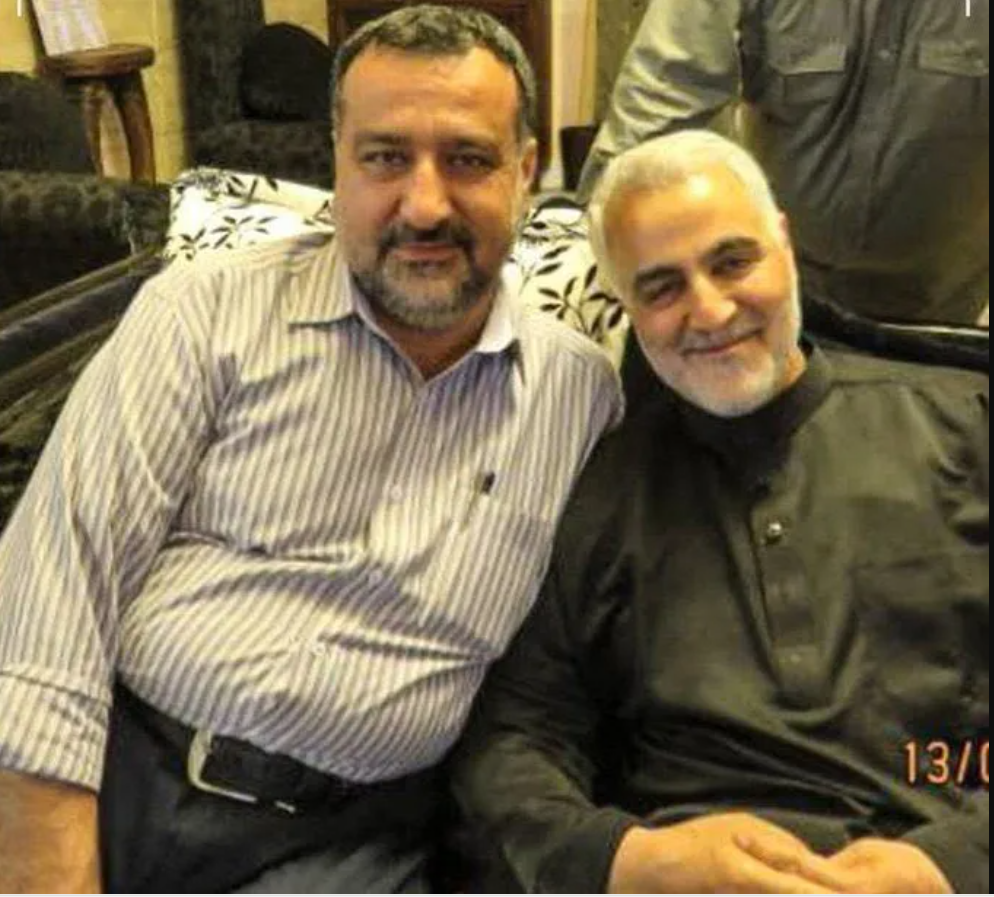News
Iran will react or not after the killing of its general in Syria
by Gerta Zaimi/ Photo credits: Robert Lansing Institute for Global Threats and Democracies Studies
When Imad Mughniyeh was killed in Damascus in February 2008, the reverberations of that execution extended beyond the region. It was not about a minor figure. Wherever he went, in the Middle East and beyond, Mughniyeh left an unparalleled legacy of violence and blood. Mughniyeh’s life mirrors the history of terrorism in the Middle East.
Lebanese by birth, with the help of the Iranians he was one of the founders of the Hezbollah movement in Lebanon, introducing new tools of terrorism to the Arab world: suicide attacks and kidnappings.
Then he would become one of the leaders in the organizations of Hezbollah and the Iranian Pasdaran.
Only in 2005, five former US intelligence agents confirmed to the US newspaper Washington Post the involvement of the CIA and Mossad.
In January 2020, another sensational murder would follow. Iranian General Qassem Soleimani, commander of the Revolutionary Guard’s al-Quds special militia, was killed after a drone attack, ordered by US President Donald Trump, at Baghdad International Airport. The main commander of the pro-Iranian Iraqi Kataib Hezbollah militia, Abu Mahdi al-Muhandis, and the head of public relations for the Popular Mobilization Forces (Shiite forces stationed in Iraq), Muhammed Rida Jabri, would also be killed with him.
Soleimani was the head of the elite team for the most secret operations, and above all a key man in the regime of the ayatollahs.
Last Monday, December 25, Iranian state television would cut all broadcasts announcing another loss, that of Sayyed Razi Moussavi, describing him as one of the longest-serving advisers to the Islamic Revolutionary Guard Corps in Syria.
Mousavi, the main coordinator of relations between Damascus and Tehran, was killed after three missiles targeted his residence in the Saydé Zeinab neighborhood, south of the Syrian capital Damascus, in an attack Iran attributed to Israel. The Jewish state denied carrying out the attack. Razi Moussavi had escaped two other assassination attempts in recent years.
He was particularly responsible for the transfer and transport of weapons from Iran to Syria, Lebanon, Iraq, Yemen and the Palestinian territories. For Tehran, it is described as the “logistical leader of the resistance axis” in Syria.
Mousavi was also responsible for coordinating between the elite al-Quds unit of the Revolutionary Guard and Damascus, facilitating the entry of Iranian-led forces and weapons into Syria and Lebanon.

The attack, which killed him along with three collaborators, happened shortly after a meeting with Iran’s ambassador to Syria ended, according to Al-Jazeera reports.
Since the beginning of the war in Gaza, the fear of the involvement of other regional actors in this war has been constant. Although clearly American diplomacy has been in full activity to block an escalation of this nature in various ways.
Iran, through the “axis of resistance”, at first glance seems to be seeking to keep pressure on the Jewish state and its American ally, but in fact it does not seem that Tehran’s goal is to extend the conflict beyond Gaza. Even at the current stage, Israel may be the one most interested in an extension towards Lebanon. In fact, attacks on the southern Lebanese border have been almost daily since October 8, the moment when Hamas committed the terrorist act, killing about 1,200 Israeli citizens and kidnapping 240 others.
On December 18, Jordan also announced that it had thwarted its biggest arms and drug-trafficking operation in years, after dozens of people linked to pro-Iranian militias tried to cross the border from Syria.
Off the coast of Yemen, an international coalition of ten countries has been formed to curb attacks by the Houthi group in the Red Sea, which control the coast of Djibouti and the Bab el Mandeb Strait, threatening the passage of ships important to international trade.
Israel has meanwhile carried out strikes against what it calls Iranian-linked targets in Syria. Damascus and Aleppo airports have been hit several times by attacks attributed to Israel, putting them out of action for weeks.
The assassination of Razi Moussavi may be part of the same strategy of the Jewish state, which, just as it is trying to eliminate the senior leaders of Hamas, is also seeking to eliminate key figures in the ranks of the Revolutionary Guards.
Immediately after Moussavi’s murder, Iran declared that it would take revenge. President Ebrahim Raissi warned that Israel would “certainly pay the price” for the killing, and Hezbollah said the Israeli attack “crossed the line”.
However, although no one can predict the reaction with certainty, and despite the apparent threats, it is very likely that Tehran will not in fact have an answer as stated. There will most likely be tactical actions, cyber attacks, but not open acts of war. Such were not seen even in the case of the murder of Qassem Suleimani himself or Imad Mughniye before.

What remains to be seen in the continuation of the war in Gaza, which according to the statements of the Israeli military will continue for months, are the attacks of the Jewish state on the southern Lebanese border and in Syria.
The original article is available here: https://lansinginstitute.org/2023/12/28/iran-will-react-or-not-after-the-killing-of-its-general-in-syria/

